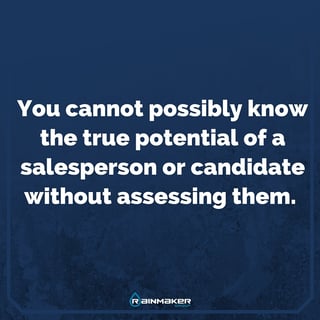Too much of a good thing may eventually work against you.
 Think about the sales wolf who left you before you could clone them. You poured your heart into them. This sales wolf onboarded lightening fast. Then they wanted your job and unfortunately a promotion opportunity was not available.
Think about the sales wolf who left you before you could clone them. You poured your heart into them. This sales wolf onboarded lightening fast. Then they wanted your job and unfortunately a promotion opportunity was not available.
You thought you had more time. Then a competitor snapped them up.
The real reason why the sales wolf left your employment so quickly was likely predictable. In fact, you could have known this was coming before you even made the job offer.
In many cases, a sales wolf is destined to leave due to their motivators combination being almost too rich for the sales role. Their motivators combination is so strong that it is not likely that you can promote them quickly enough, pay them what they demand, and/or provide the challenges they expect.
The very motivators that make a sales wolf highly-successful will often cause them to seek more challenging and rewarding opportunities elsewhere. We refer to this as the "sales motivators dilemma".
The importance of motivators in driving sales performance.
Ever wonder why some salespeople are profoundly more driven to be successful than others?
Our motivators drive us toward or away from doing something. Thanks to the work of Spranger, motivators are measurable. Every job you can imagine has an ideal motivators combination that drives success for that role. A job benchmarking process may be used to identify the unique combination each sales role requires to maximize contribution to sales performance.
The primary motivators required for success in most sales roles.
- Utilitarian: The desire for return on time, energy and resources.
- Individualistic: The desire for power, control and recognition.
- Theoretical: The desire for discovery of knowledge / truth and appetite for learning.
If any one of these three motivators are low or are much higher than ideal for a given sales role, challenges will likely soon become evident.
The best salespeople are seekers.
- Income needs will no longer be achieved with your company, they will seek other opportunities they believe will.
- Power needs will no longer be achieved with your company, they will seek other opportunities they believe will.
- Learning needs will no longer be achieved with your company, they will seek other opportunities they believe will.
The five mindsets you need to handle the sales motivators dilemma.
Following are five mindsets that can help you handle salespeople who are potentially more motivated to sell than is ideal.
Embrace the reality that top sales performers are going to leave. Face the sales wolf turnover reality head on. Realize that the benefits of having a fully-onboarded sales wolf on your team for any period of time can be profound. Like it or not, the best salespeople are going to leave sooner than you would like.
Knowledge is power. Use a valid sales personality test to identify if a sales wolf has a particularly strong motivators combination. Then plan accordingly.
Tell your candidate sales wolves the truth about their future with you. Tell them ahead of time during the interview process the truth about the limits of their income, promotion, and learning opportunities with you. For those with high Individualistics in particular, being frank with them early on may actually buy you more time.
Develop Your Sales Succession Plan. If you realize you are hiring sales wolves who will eventually seek promotion, you may be able to develop your succession plan to take advantage of it.
Appreciate the benefits of having a sales wolf on your sales team. The best salespeople onboard much more quickly than the average salesperson. We often see a top sales wolf not only reach the "cruising altitude" in half the time an average salesperson does, but also outperform by a factor of 2x to 10x.
You cannot possibly know the true potential of a salesperson or candidate without assessing them.




